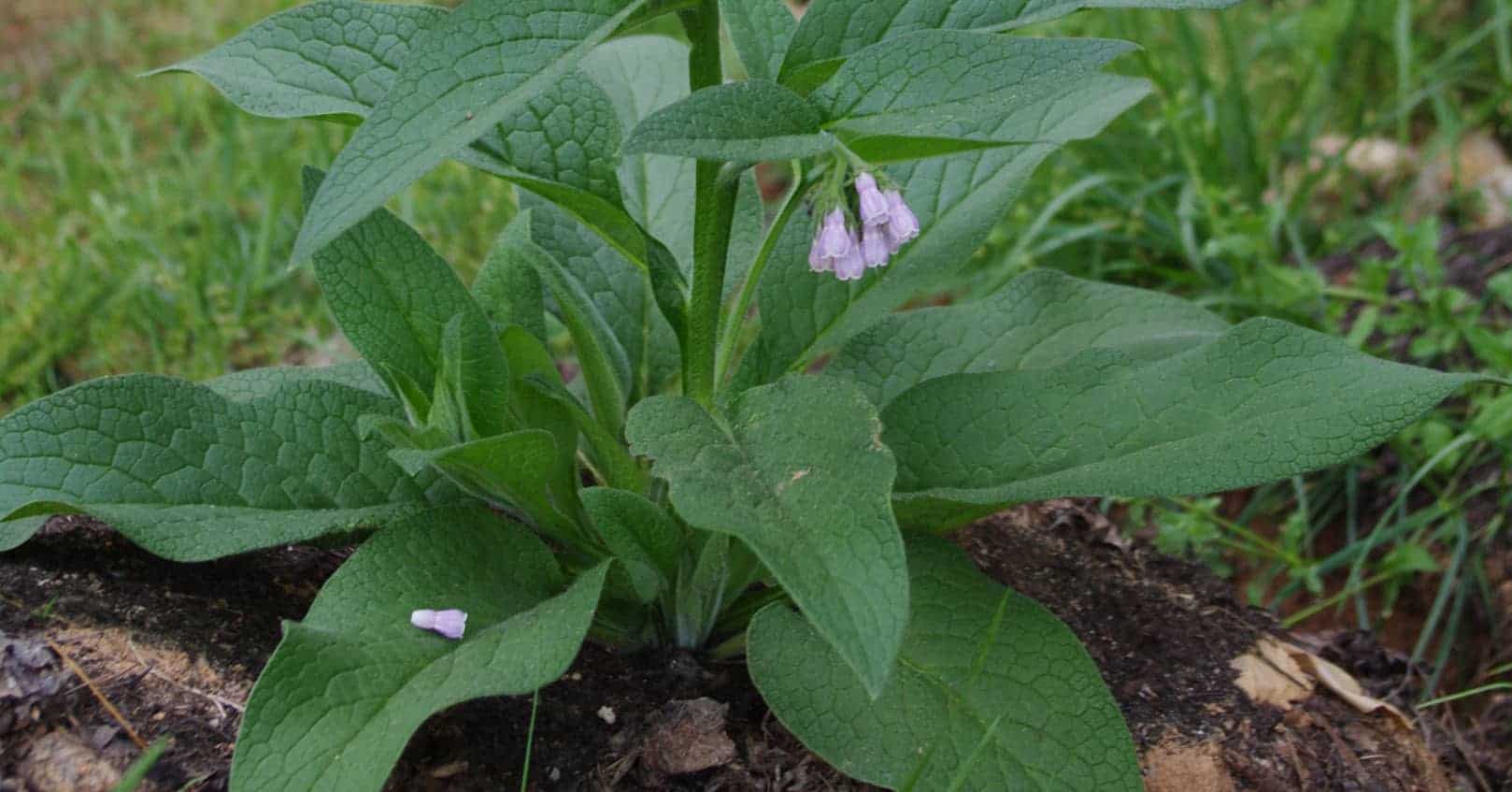For fifty years my family has used my mother’s People Paste, a recipe for an herbal poultice to heal cuts and other wounds. Now you can use it for your own family.
This paste is supposed to be good for bruises, cuts infections, blood poisoning, boils, and even gangrene. Can take the place of stitches in an emergency. We’ve used it on burns, stings, cuts and when I’ve stepped on a nail. Once my husband cut off a portion of his thumb, and it healed so well you can barely tell. We use it all the time!
Disclaimer
Before I give you the recipe, here is the required disclaimer. I am not a medical doctor, and there have been no studies on this mixture. If something is seriously wrong with you, PLEASE go to the doctor! If you use this and don’t heal, go to the doctor. If you need stitches, go to the doctor. Same with blood poisoning. Sure, use the people paste in a pinch, but make sure you get checked out as soon as possible.
Where to buy the herbs
You can buy all the herbs at your local health food store or online. You may have to buy several ounces of each, but you can mix it all in a big, tightly sealed jar and store it in your refrigerator.
Recipe for People Paste (an herbal poultice)
Mix in four equal parts of powdered herbs:
Lobelia (for pain)
Slippery elm (for replacing flesh and skin)
Comfrey (to heal and pull toxins)
Goldenseal (a natural antibiotic)
Directions for use
Mix the powder with water to form a paste, enough to cover the wound completely. Apply directly to your wound, cover with plastic to keep moist and tape. Leave for 12-24 hours and then replace, if necessary. If you make too much, don’t worry. You can keep the mixed herbs and water (the paste) in a covered container for a couple days. I usually mix up enough for a couple applications if I know I’m going to be changing it often.
Remove the plastic right before changing. You do not want to let the herbs dry out too much between reapplications, but sometimes they do. If you take the plastic off and the herbs have dried and are sticking to the wound, soften with water to remove most of them (no need to scrub it all off) and then reapply NEW herbs. In certain instances, if your skin gets too wet and swollen (like hands and feet do when swimming), you may need to leave off the herbs for an hour or two before reapplication.
The herbs will stain your skin a bit, but it goes away. My whole family swears by this herbal poultice. Thanks to my mother who has passed it down to all of us. Good luck!




Perry Inman
For stings the best thing I have found and works fairly fast is make a poultice out of a benadryl. Crush it up in a spoon add a couple drops of water until it is a paste. Put directly on the sting.
Teyla Rachel Branton
Interesting. Thanks for the tip!
Nan
Also vinegar, applied with a bit of paper towel or a bandana and left on for just a few moments, is a quick ‘n easy solution to mosquito bites. Plantigo Major, aka; Plantain, or ‘hikers band-aid, draws out the injected ‘venom from a bee sting.
Teyla Rachel Branton
Nice. Vinegar certainly has so many great uses!
Andrea Fonorow
I have been a fan of comfrey root powder for 40 years & have successfully used the paste for many types of injuries. I always have it on hand. About 10 days ago I had a scrape & burn procedure on a skin cancer spot on my leg that left a deep wound. I’ve been following the dermatologist’s advice to use an antibiotic cream on it daily but it isn’t healing as fast as I would hope & is still painful at times. I’m very tempted to try the comfrey root paste on it now. The powder I have has been secured up in a sealed glass jar but it could be 10 years old now. It seems fine but wondering if you think it could be too old to use?
Teyla Rachel Branton
It shouldn’t hurt to give it a try. If nothing happens, though, fresh would be best.
Cherie
Hi!
We recently made people’s paste (similar recipe but came from [book name deleted]). It has bayberry in it as a styptic. Do you have any idea if applying the paste to a cervical tear after labor would help until it could be stitched up?
Thanks
Cherie
Teyla Rachel Branton
Sorry, I can’t post the book name you recommended, but I can say that my mother, a lay midwife, has used this after childbirth, even in the places of stitches. But obviously, to have the tissue reconnect, you’d have to be hold your legs together for a while. I know people who have used it in lieu of minor stitches after birth, so as a placeholder until you get stitches, it should work. Again, I’m not a doctor, so you’ll have to make your own decision.
Judy Henshaw
I would like to try the goldenseal root poultice on my dog. He has hot spots on his groin area and I’m tired of the vet wanting to keep trying different drugs. I’m assuming it would be safe for him?
Teyla Rachel Branton
I’m not a vet, but I don’t see how it would hurt him topically if it doesn’t hurt humans. I’d give it a try and watch him. Let me know!
Susan
I love people paste. I used it to treat a MRSA skin infection.
I was instructed to mix it with medicinal strength Manuka honey. Immediate relief from my pain and quick healing with very little scarring!
Teyla Rachel Branton
Great! The honey with its antibacterial properties sounds like a good addition!
Rebekah
I had a horse that got caught up in a barb wire fence at a neighbors. I used people’s paste mixed with honey. He healed quickly with no scars. He was a mess, I couldn’t believe how well it worked and have been a fan for almost 25 years
Teyla Rachel Branton
That is really cool! Nature is miraculous!
Valerie
Can you use this poultice on dogs?
Teyla Rachel Branton
We have used it successfully on animals before. You just need to make sure that they won’t rip off the bandage.
Jason
Hi Teyla, when applied should I remove the herbs and then apply the new herbs, or apply the new herbs onto the old?
Thanks
Teyla Rachel Branton
You remove the old herbs. No need to scrub it all off, just remove the bulk of it. If it has dried too much and is sticking to the wound, soften the old herbs with water, remove them, and then reapply with new herbs.
nicholas
when the plastic is removed and it has hardened do you leave , soften or reapply
Teyla Rachel Branton
You remove the plastic right before changing. You do not want to let it dry out too much between reapplications, but sometimes it does. If you take the plastic off and the herbs have dried and are sticking to the wound, soften with water, and then reapply NEW herbs.
Carla
Do you mix it with any liquid? How do you make a paste with the dry herbs?
Teyla Rachel Branton
Hi Carla. You mix however much of the herbs you need with a few drops of water. I corrected the original post to show that. I appreciate you asking!
Carla
Thank you kindly for responding – I appreciate it.
Teyla Rachel Branton
Oh, and Carla, you can keep the mixed herbs and water (the paste) in a covered container for a couple days. I usually mix up enough for a couple applications if I know I’m going to be changing it often.
Carla
Thank you.
Winnie Thomas
This sounds so intriguing, Teyla. Where is the best place to get the ingredients?
Teyla Rachel Branton
If you’re my mother, you grow, dry, and powder your own herbs. If you’re like me, you go to the nearest health food store and buy the powdered herbs there. Hope this helps! I updated the post to talk about where to buy it and how to store the mixture.